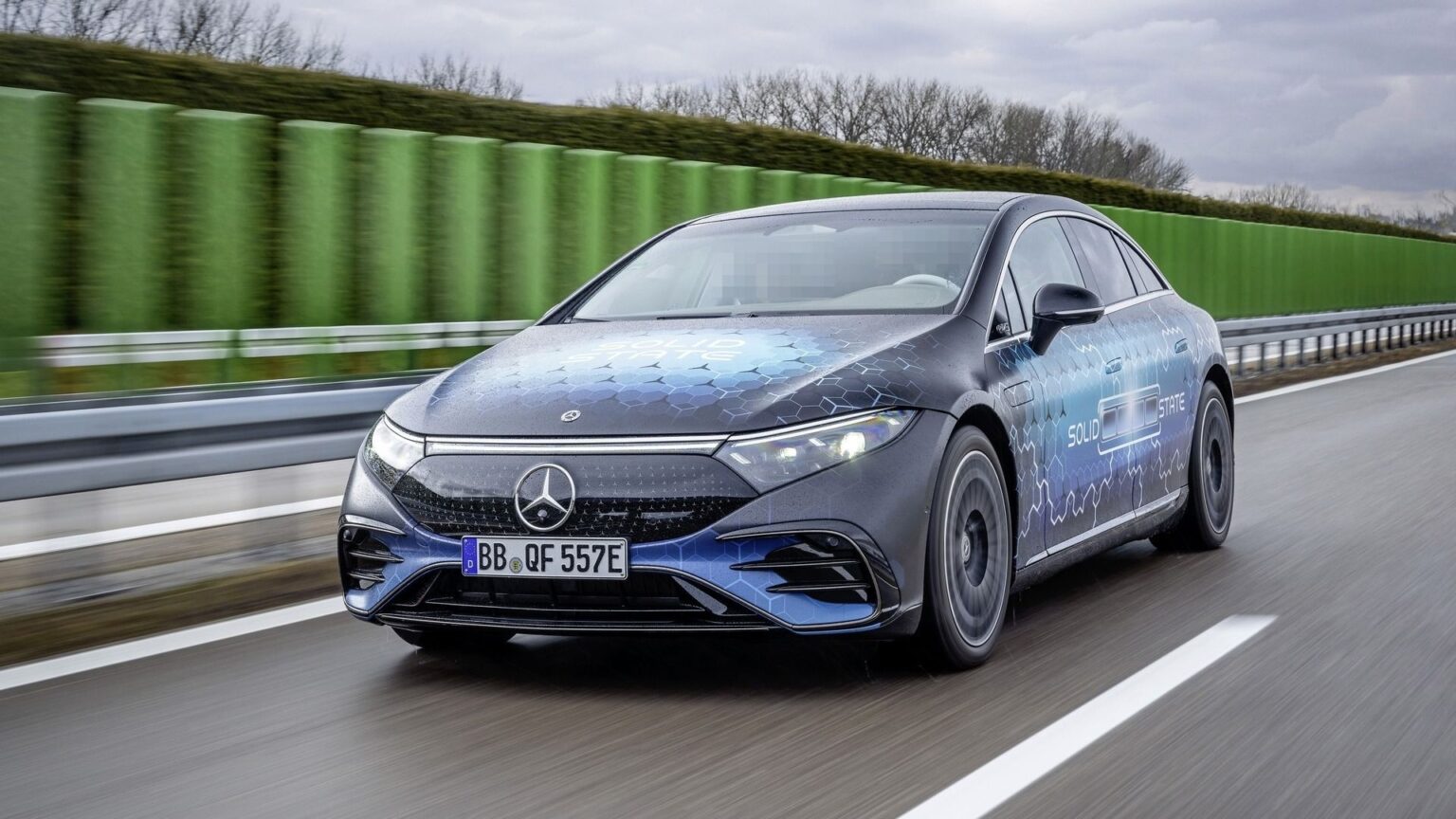Electric vehicle skeptics have noted several factors preventing mass adoption. The main ones are that EVs have low range, take a long time to charge, and are laden with heavy batteries that constrain design choices. The solid-state battery is the theoretical panacea that would address those issues and cement the EV revolution. Mercedes-Benz just announced that the solid-state battery is no longer a theory. We knew Mercedes-Benz was partnering with American battery startup Factorial Energy to build a solid-state EV prototype. The brand has revealed the new solid-state prototype and confirmed that it has left the lab and begun road testing.
Mercedes Based Its Solid-State Prototype On The EQS Sedan
Significantly, this Mercedes prototype is not a bespoke, purpose-built EV like
. Mercedes built it in a passenger car on an existing production EV platform. The brand used a “slightly modified” version of its all-electric EQS sedan, one of the most aerodynamically efficient electric cars on the road.
Mercedes did not provide too many technical details about the prototype. The brand says the battery offers 25 percent more range from the same weight and size as the EQS’s current battery. The vehicle gains additional efficiency through passive battery cooling. Mercedes expects the total range to exceed 621 miles, which would best the current top-range EV by more than 100 miles.
Solid-State Batteries Are Potentially Game-Changing for EVs
Solid-state batteries would be dramatically more energy-dense. That eliminates range anxiety. Having 621 miles on tap would eliminate range anxiety; it would be enough juice to drive 10 hours from Detroit to New York City without stopping — more than most humans could endure. Toyota says its solid-state batteries will be capable of 745 miles.
That energy density would allow manufacturers to build not just 600 or 700-mile EVs but also 300 or 400-mile EVs with smaller and lighter batteries. This flexibility would enable EV design to branch out beyond giant trucks and heavy crossovers to vehicles like sports cars. Solid-state batteries would also charge much more quickly. Samsung claims a sub-10-minute charging time for its solid-state EV battery in lab testing. The technology could approach the point where charging an EV battery to 80 percent would take about the same time as filling up a car with gas.
TopSpeed’s Take: The Challenge Will Be Making Solid-State Batteries Affordable
An automaker achieving a technical feat is one step. Reproducing that technical feat cheaply enough to put into any production vehicle — let alone one a mere financial mortal can afford — is a far more difficult challenge. Mercedes-Benz, notably, did not spell out how much this solid-state prototype cost to build.
That said, Mercedes’ use of a passenger vehicle and an extant EV platform for the solid-state prototype should be encouraging. It’s a sign that the brand is serious about incorporating solid-state batteries into its production lineup and that it could arrive sooner than we expect.
Read the full article here


